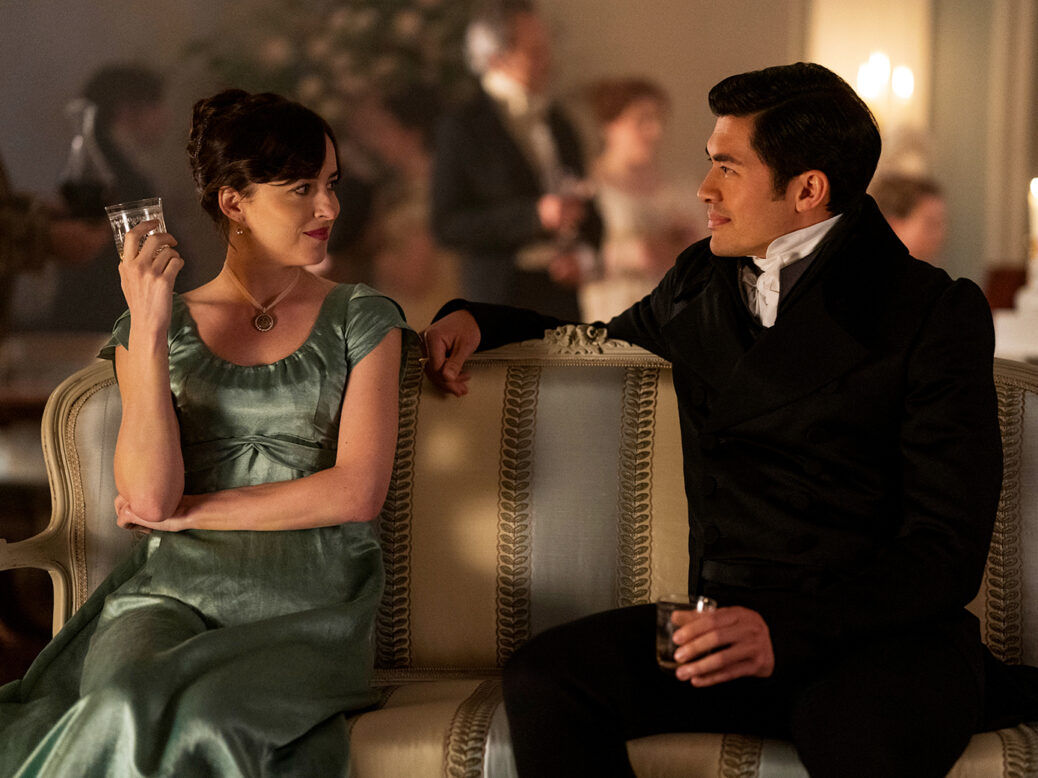
The trailer for the new Netflix adaptation of Jane Austen’s Persuasion recently appeared online, and the result was uproar. Not since the first glimpse of Tom Hooper’s 2019 bastardisation of Cats has there been such horror at what seems like an obvious travesty of a much-loved work.
It is easy to see why the preview for director Carrie Cracknell’s first film has attracted such opprobrium. Persuasion is regarded by many Austen admirers as perhaps her greatest work. As well as being her final novel, it is a sombre and affecting meditation on lost love and the possibility for redemption. It has been filmed successfully for television twice before, once in 1995 and again in 2007.
Austen remains big business, and so Cracknell has cast Dakota Johnson, star of the Fifty Shades series, as Austen’s heroine Anne Elliot. Johnson has certainly proved that she can act in such films as Maggie Gyllenhaal’s The Lost Daughter and Luca Guadagnino’s Suspiria, but, as one wag pointed out on social media, “Dakota Johnson has the face of someone who knows what an iPhone is.” Cracknell and her screenwriters Ronald Bass and Alice Victoria Winslow seem to have been heavily influenced by Phoebe Waller-Bridge’s Fleabag, so we are presented with an Anne who is constantly directing arch and knowing looks to camera, interspersed with decidedly millennial observations on love and romance. The most wretched of these, undoubtedly, is when a lovelorn Anne announces, of her long-lost lover Captain Wentworth, “now we’re worse than exes: we’re friends”.
Helpfully, the trailer tells us that Persuasion is “based on the timeless love story by Jane Austen”, who is “the author of Emma and Pride and Prejudice”. Well, that clears that one up. It may, of course, be that Cracknell’s film is better than its marketing suggests, and that underneath its irritatingly flippant exterior lurks a sensitive and thoughtful adaptation of the novel. Certainly, it seems to be straining for the same zany vibe of irreverence that has permeated many period adaptations recently, not least Armando Iannucci’s excellent David Copperfield, which made effective use both of diverse casting and contemporary psychological insight into Dickens’s characters. But few who have read and adored Persuasion might have finished it and thought that what it really needed were more jokes about jam moustaches.
[See also: What the “men don’t read novels” debate gets wrong about fiction]
Still, however weak it is, it will do little to stem the consistent stream of Austen adaptations that we are faced with. Given that the half-dozen canonical novels have been adapted multiple times, it is little wonder that filmmakers have branched out into the apocrypha, both superbly – in the case of Love and Friendship, Whit Stillman’s sublime 2016 version of her epistolary novel Lady Susan – and indifferently. It is debatable whether the world needed two seasons of Sanditon, given that Austen only wrote 11 chapters of the novel in the first place, but they were made regardless.
The most generous interpretation for recurring adaptations is that they are catering to the same cosily undemanding market as the perennially popular Bridgerton. Stripped of their linguistic wit and psychological insight, it is relatively easy to turn Austen’s novels into breeches and corset romances, revolving around the most heteronormative plots imaginable. Even as screenwriters and actors talk airily about the queer undertones of characters such as Emma Woodhouse and Fanny Price, it is telling that the last major adaptation of Emma, directed by the photographer Autumn de Wilde and starring Anya Taylor-Joy, rowed back from anything even slightly controversial, despite Johnny Flynn’s Mr Knightley baring his bottom.
Where Austen has most interested contemporary thought is post-colonial theory. The slave trade often lurks unmentioned in her books, but is ever-present. The only novel in which it is given even a passing mention is (for my money, her masterpiece) Mansfield Park, in which it is hinted that Sir Thomas Bertram’s vast wealth comes from the plantation; when the subject is briefly raised at dinner, it is met with a “dead silence”. Yet this has not stopped filmmakers from regarding Austen through a post-colonial lens. As far back as 1999, the underrated adaptation of Mansfield Park, with Harold Pinter as Sir Thomas, brought its themes of slavery to the forefront, and no doubt future versions will fully interrogate those ideas further.
Perhaps the best way to adapt Austen in the future is to be more, rather than less, irreverent. Fire Island, the recent loose version of Pride and Prejudice, gave both a contemporary and a gay twist to the story, attracting rave reviews in the process. Laura Wade’s recent stage adaptation of The Watsons offered a Pirandello-inspired twist that raised questions about the nature of transforming one artistic medium into another, and the recent West End smash Pride and Prejudice* (*sort of) mixed romance with karaoke to hugely entertaining effect. In their own way, all of these feel truer to the spirit of Austen – a woman who made her name and career with her pen at a time when female authorship was regarded as a scandalous eccentricity – than seeing an all-American actress offer a poor imitation of the Fleabag character.
But what would Austen say? She might consider it a truth universally acknowledged that the blame for a modish adaptation of Persuasion is likely to fall disproportionately on Cracknell and Johnson, rather than Bass or the male stars, Cosmo Jarvis and Henry Golding, and sigh. Then she might quote an apposite line from the book: “If there is anything disagreeable going on, men are always sure to get out of it.” But afterwards, she would be pleased by the knowledge that her works are still being read, discussed and adored two centuries after her death, and no know-it-all piece of derivative postmodernism can alter that inalienable fact.
[See also: How did Netflix’s Persuasion get the novel so wrong?]






